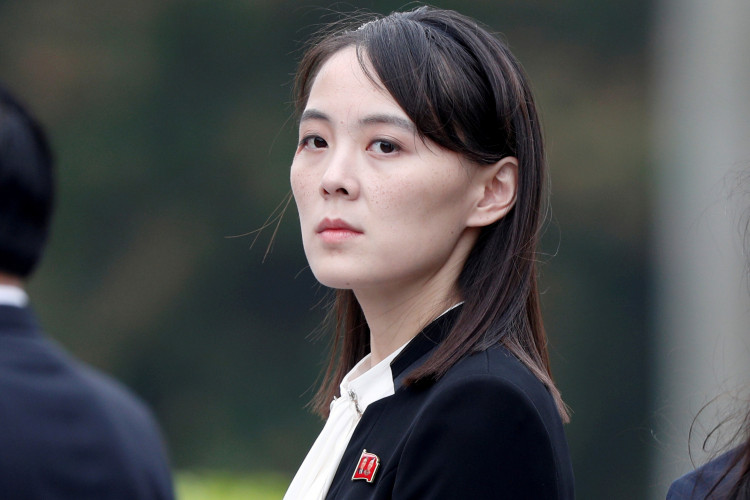Tensions between North and South Korea have reached a new high as Pyongyang threatens military action in response to alleged South Korean drone flights over its capital. North Korea claims that drones from the South have flown over Pyongyang on multiple occasions, prompting a stern warning from Kim Yo Jong, the powerful sister of North Korean leader Kim Jong Un. In her statement, she vowed that any further drone incursions would result in a "terrible calamity" and placed the blame squarely on the South Korean military.
North Korea's state news agency, KCNA, reported on Sunday that artillery units stationed near the border with South Korea have been put on high alert and are prepared to fire in response to any perceived provocations. The situation follows accusations from North Korea that South Korean drones crossed the border during nighttime operations on October 3, as well as two more times in the following days. North Korea claims that the drones were carrying anti-Pyongyang propaganda, a tactic often employed by South Korean activists.
While South Korea's Joint Chiefs of Staff initially denied these claims, their stance has since softened, with military officials now stating they cannot confirm whether the drone incursions took place. This ambiguity has only fueled North Korea's anger, with Kim Yo Jong stating that the South's failure to provide a clear denial is tantamount to an admission of guilt.
"If the military stood by while its own citizens employed drones, a widely recognized multi-purpose military tool, to violate another country's sovereignty, thereby increasing the risk of armed conflict with a potential adversary, this would amount to intentional acquiescence and collusion," she said in remarks broadcast through North Korean state media. Kim further warned that "the moment a South Korean drone is discovered once again in the skies above our capital, a terrible calamity will surely occur."
Pyongyang's rhetoric has intensified following these alleged drone flights, with the North Korean military reportedly preparing "all means of attack" to defend against further incursions. The North's defense ministry has accused South Korea of deliberately provoking tensions, raising fears that an armed conflict could break out if another drone is detected over North Korean territory.
The situation underscores the broader deterioration of relations between the two Koreas, exacerbated by North Korea's frequent missile tests and South Korea's joint military drills with the United States. The region has seen an uptick in hostile activity, with both sides engaging in Cold War-style psychological warfare tactics. Since May, North Korea has been sending balloons filled with waste materials such as paper and plastic into South Korea, claiming the trash is in retaliation for South Korean activists sending propaganda leaflets across the border. In response, the South has used loudspeakers to broadcast anti-regime messages and K-pop music toward North Korea.
Kim Yo Jong's comments further suggest that North Korea views the current tensions as part of a broader effort to pressure Seoul and Washington. Analysts believe that Pyongyang may be seeking to heighten tensions ahead of the U.S. presidential election, in hopes of leveraging its nuclear program and missile capabilities to secure concessions from the international community. South Korean officials have voiced concerns that North Korea could carry out major provocations in the coming weeks, potentially including a nuclear test or a long-range missile launch.
In a recent interview with The Associated Press, South Korean President Yoon Suk Yeol warned that North Korea is likely preparing for such provocations, aimed at drawing Washington's attention. "North Korea may attempt to ratchet up tensions further, using this window to carry out major provocations like a nuclear test or an intercontinental ballistic missile test to strengthen its bargaining position," Yoon said.
North Korea has long sought recognition as a legitimate nuclear power and has used its military posturing as a way to force negotiations with the United States. However, past attempts to engage in talks have stalled, with Washington demanding that Pyongyang first make concrete steps toward denuclearization.






